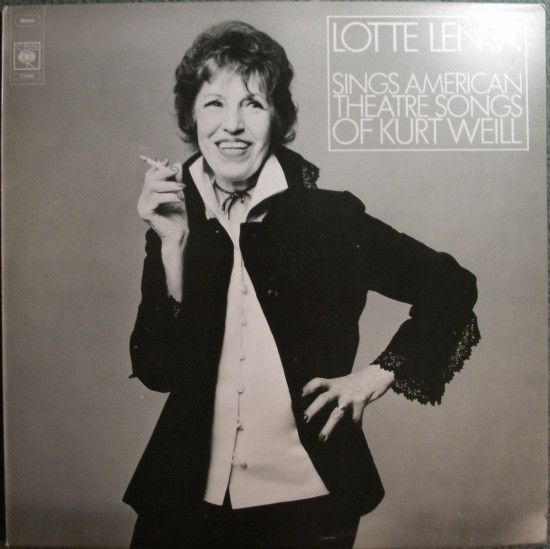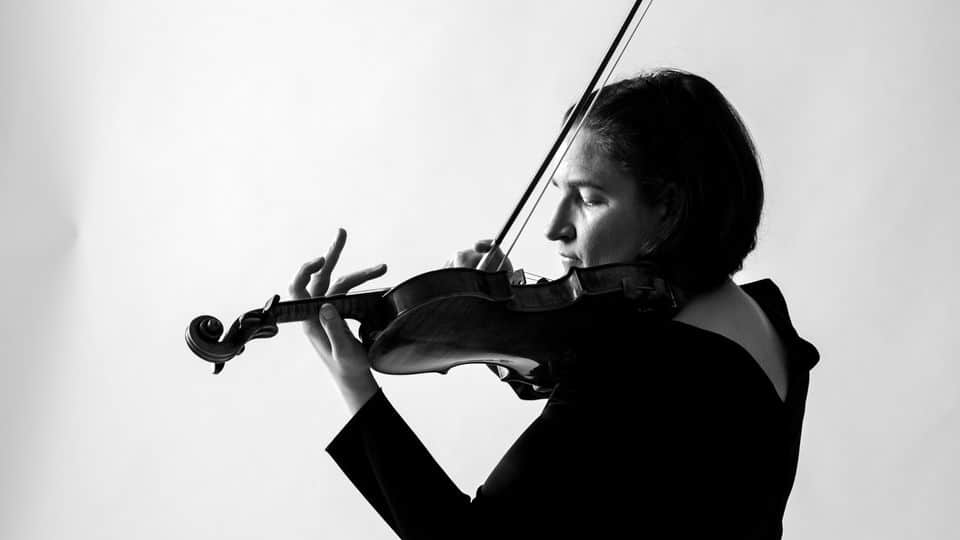A competition in how not to sing
NewsDid we even know that there is a Lotte Lenya Singing Competition?
Lenya, who married Kurt Weill, was known for her cracked voice and wicked humour. She was a great actress.
Melody and accuracy were not her forte.
The 24th annual Lotte Lenya Competition has just been won by Amanda Sheriff with a $20k first prize, funded by the Weill-Lenya estate.
Surabaya, Jonny.






Yes, indeed we did. “Sharkcon Level 4!”
http://www.kwf.org/lotte-lenya-competition
” accuracy and accuracy were not her forte.”
says NL…
Message from Larry L Lash:
I saw – and fell in love with – Lotte Lenya in the original Broadway cast of “Cabaret” and through her I discovered my nearly-60-year affinity for the music of Kurt Weill. In my years working for PolyGram Records (a predecessor-in-interest to Universal Music Group) I produced several reissues of Weill compositions, starting with a studio adaptation of “Johnny Johnson” overseen by Lenya, recorded for MGM Records in the 1950s with Burgess Meredith, Evelyn Lear, and Thomas Stewart. I wrote my very first published review for the newsletter of The Kurt Weill Foundation in 1987.
The KWF was founded by Lenya in 1962 and has over the years funded the careers of many musicians, research grants, new productions, critical editions, and overseen the catalogue of Weill’s stage works. The foundation performs similar functions for the music of Marc Blitzstein. The KWF has beautiful headquarters in NYC’s Chelsea district and offers access to incredible archives and shares a great deal though its website (www.kwf.org).
The most-recent annual Lotte Lenya Singing Competition was the 24th, so it’s a bit late to start bitching about the late-career vocal skills of its namesake. Lenya never masqueraded as a classical singer; she was an impeccable actress and chanteuse and always herself, be it as a Weill protagonist or a 007 villainess.
I could go on for many pages, but will try to limit myself:
The very-active board of the KWF has included the names of music theatre luminaries such as Julius Rudel, Teresa Stratas, and Hal Prince.
I doubt if the Metropolitan Opera could have given such a magnificent production as John Dexter’s 1979 “Rise and Fall of the City of Mahagonny” without the participation of Lenya and the foundation.
One of the KWF’s recent accomplishments is a very-successful reduction by HK Gruber and Christian Muthspiel of “Die sieben Todsünden” (“The Seven Deadly Sins”) for small orchestra (13 players); since its 2019 premiere at Beethovenfest Bonn, it has been taken-up by companies as close as your backyard when, in 2021, the Royal Opera’s Jette Parker Young Artists performed it (coupled with “Das Mahagonny Songspiel”) for a COVID-era livestream.
No, Norman: no one sounded as if they honed their vocal skills based on Lenya’s 1950s Columbia Records albums, but thank God they were made and are still available.
Footnote for generations who know “Cabaret” only from its 1972 film by Bob Fosse: The role created for Lenya, Fräulein Schneider, landlady to Sally Bowles and Cliff and the entire subplot of her 1929-1930 Berlin autumnal romance with her Jewish suitor, Herr Schultz (created by Jack Guilford), were removed from the film adaptation. Also missing are the songs and duets written for those characters; it is less of a show without Frau Schneider’s summing-up of Weimar culture, “So What?”, and her chilling response to an invitation to marriage and a move to less hostile territory: “What Would You Do?” (also gone – from the film and all subsequent Broadway productions since 1969 – is Herr Schultz’s Yiddish number, “Meeskite”).
Mr. Lash:
That 1950’s recording of “Johnny Johnson” is remarkable. I have the LP reissue you worked on, and listened to it just last month.
Poison-tipped shoes are an optional extra and not a formal entry requirement
Whether Lotte Lenya could sing properly, or not is unimportant…she was a great influence on Kurt Weil, and without her German Chanson would have been robbed of stupifying settings of German, French and English verse, which became international hits…for example: Surrabaya Johnny, Youkali and September Song.Along with MaxAnderson – Street Scene, she helped Weill crystalize facets of Revue, Cabaret, Opera and Operetta to establish what eventually became The Broadway Musical…Other compisers like Richard Rodgers and Leonard Bernstein went on from there.
I guess someone got up on the wrong side of the bed today.
I just attended this year’s competition, where it was announced the foundation has provided over $1.3 million dollars to young and developing singer-actors over the years. Last year, with COVID shutting everything down, they even offered every finalist a bonus award. The recipients represent leading talent on premiere theater and opera stages around the world. Katrina Galka, one of the second place tie winners this year who offered a searing Fire Aria and, ahem, wrenching Surabaya Johnny, just premiered Olympia at Opernhaus Zürich last year for example. The participants offered everything from Bellini to Guettel, and quite well thank you very much. The past winners concert included performers that often star on Broadway and West End stages, the Metropolitan Opera, Deutsche Oper Berlin, ad nauseum. And they all tend to be advocates and actively involved in new works and modern multimedia projects.
Coaches and judges often include some of the leading talent of the crossover of musical theater and opera worlds as well. Rebecca Luker was associated with the competition for many years in different capacities, now with a special award in her name after her untimely passing. Victoria Clark has served as coach and judge recently. Jeanine Tesori (Fun Home, Thoroughly Modern Millie, Blue) was a judge this year as well. I could go on and on.
So if you didn’t know of the competition – and strange since this is the third year you’re reporting on it – you should. And there’s no need to be a about it.
She was a force of nature. Was she a trained operatic singer? Clearly not. But that’s why she was perfect–and peerless–for the Brecht/Weil collaborations.
“Lenya, who married Kurt Weill, was known for her cracked voice and wicked humour…Melody and accuracy were not her forte.”
Well, I wouldn’t say that; melody is melody even when sang an octave down with a cracked voice. And Lenya hadn’t always such a deep singing voice; she started out in the 1920s as a slightly wavery but still precise soprano soubrette, as we can hear in the Weill recordings of the period reissued as “O moon of Alabama” (Capriccio 10347, 1990). Assuming that Berlin-period Weill should generally sound like the older Lenya is rather like assuming that Verdi should generally sound like Alberta Masiello (those who grew up on Met broadcasts in the 1960s and 70s know who I’m talking about here)